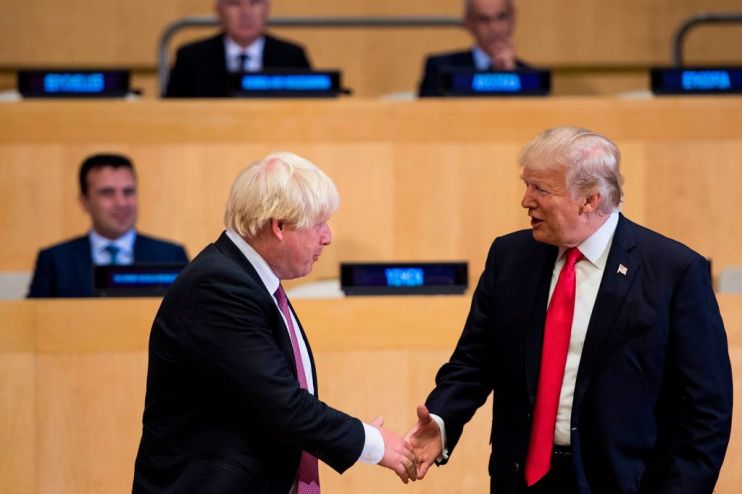Here’s one simple tax trick that Boris Johnson could borrow from Donald Trump

It’s been great to see the new government hit the ground running, and even better to see it focus on a hugely important idea which our think tank has been beating the drum for: incentivising business investment.
Britain likes to think of itself as a business-friendly country. We have slashed corporation tax. We have a world-class record in attracting foreign investment. We have made it commendably easy to start your own business – as thousands of people do every year.
But our record on business investment – the amount of money that those companies spend on improving and expanding their operations – is awful.
Between 1995 and 2015, we had the lowest rates of business investment across the entire OECD. And the picture has barely improved since. This, of course, plays into our crippling productivity problems, bringing down growth and making us all poorer.
So what’s going on? Why, despite those cuts in corporation tax, are companies so unwilling to invest?
The answer turns out to be relatively simple.
Yes, our headline corporate tax rate is the third lowest in the OECD. But the rest of the tax system too often punishes firms rather than rewarding them for investing. For example, if you expand your premises, your business rates go up.
According to the International Tax Competitiveness Index, produced by the Tax Foundation in Washington DC, Britain ranks just sixteenth out of the 35 countries studied in terms of the overall corporate tax burden. And when it comes to “cost recovery”, we are second from bottom – behind every other country in Europe.
“Cost recovery”, put simply, is how easy it is to write off capital investments against income. A well-designed tax system incentivises firms to invest in things – like better machines or new computer systems – that will generate profits, growth and jobs down the line. But ours does an awful job of that.
And the situation was made worse by the fact that George Osborne paid for his corporation tax cuts by cutting existing allowances – thus tilting the business playing field away from capital-intensive sectors like manufacturing and towards services, and, in the process, away from the regions and towards London.
Enter Boris Johnson. One of the encouraging leitmotifs of the new regime in Number 10 has been the need to spread investment more widely – and, in particular, to address Britain’s lamentable record on business investment.
As the new Prime Minister said on the steps of Downing Street, he wants to “change the tax rules to provide extra incentives to invest in capital and research”.
This is something that our think tank has strongly argued for, both in two key papers we’ve published this year, and in our conversations in Whitehall and Westminster.
It would, we argue, provide a more cost-effective boost to GDP than just cutting the headline rate of corporation tax further, because the extra money would solely incentivise new investment – and it could well be more politically appealing.
But what might such measures look like?
The most obvious model is America, where “full expensing” – allowing firms to write off capital expenses immediately, rather than spreading the cost over a number of years – was at the heart of Donald Trump’s tax reforms.
And with good reason: the US states that adopted full expensing saw business investment rise by 17.5 per cent compared with states that didn’t, with significantly higher employment and growth than in those states which opted out.
Britain has already moved in this direction. In his final Budget, Philip Hammond raised the Annual Investment Allowance (AIA – the amount which can be written off) from £200,000 to £1m. But this was only a temporary measure – and businesses are cautious given that the AIA has, since 2010, yoyo-ed up and down.
The most obvious way to give businesses certainty – and promote business investment, especially in a no-deal scenario – would be to make the AIA unlimited, permanently, for all new investments in plant and machinery.
There would, of course, be a significant upfront cost, but in the long term it would be more than affordable, especially given the extra investment it would promote.
There are other, cheaper ways of doing things. You could reduce the bias against business investment in the tax system by adopting what is known as “neutral cost recovery”, in which the cost of capital write-offs is adjusted over time to offset the impact of inflation. You could also offset the costs by restricting tax deductions on debt interest.
It remains to be seen precisely which way the Johnson administration will jump. But as we’ve argued, business investment is the Achilles’ heel of the British economy.
Reforming the write-off regime and introducing full expensing is the best way to get it growing – and Britain along with it.
Main image credit: Getty